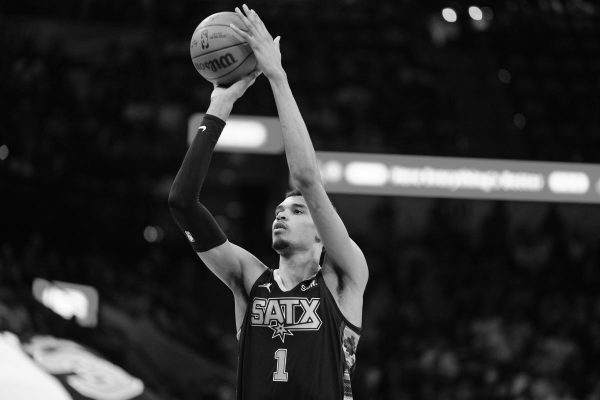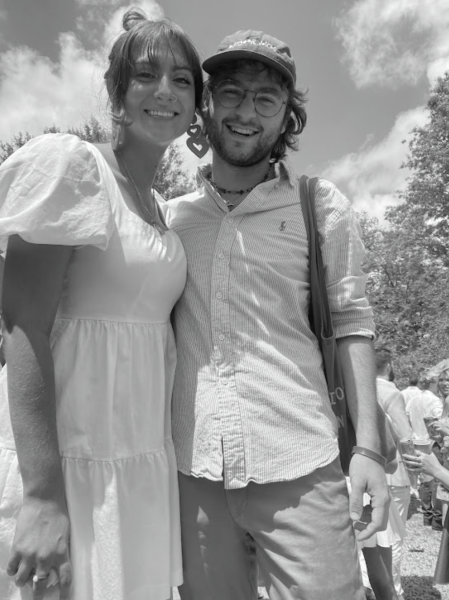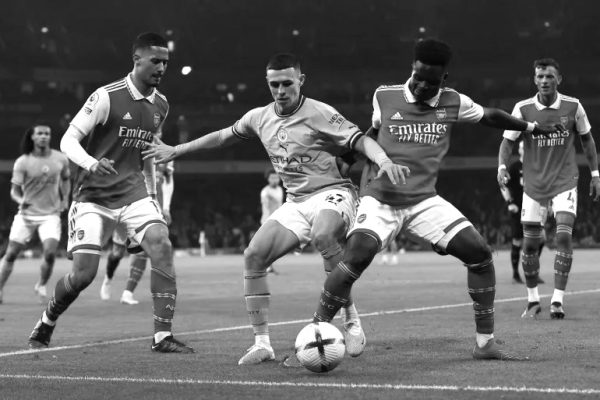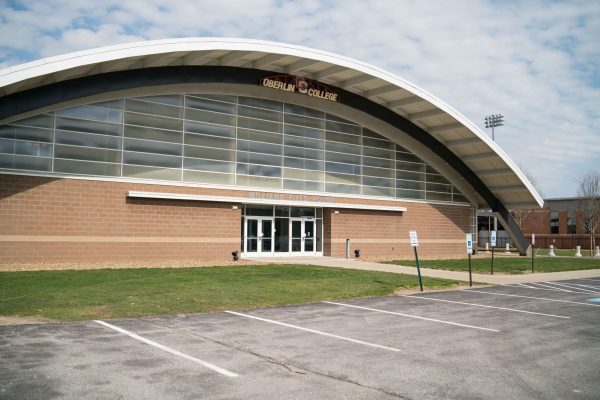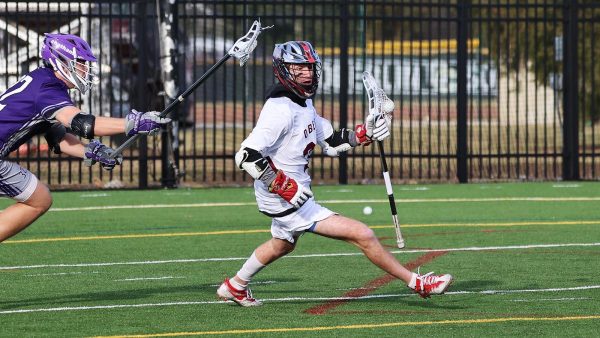Athletics 101 Opens Athlete Divide Conversation
English Professor Yago Colás led the first installment of a three-part workshop called “Athletics 101” in Wilder Hall Monday, Sept. 25. The workshop was designed to encourage an open conversation about the role of athletics and presence of the athletic community at the College.
Colás has spent much of his first month at Oberlin concentrating on the integration of athletics and academics on campus. A former professor of Comparative Literature within multiple disciplines at University of Michigan, Colás teaches a course on sports culture and philosophy. He will also serve as an assistant to the Yeomen basketball team for the upcoming 2017–2018 season.
The dialogue that “Athletics 101” attempted to foster is not groundbreaking content among Oberlin students — whether through Facebook discourse or real-life conversations, most Oberlin students have engaged in discussion of the “divide” between athletes and non-athletes. However, Colás brought novel expertise and authenticity to the contentious campus topic, attempting to provide the appropriate launching pad for students and faculty alike to move the conversation from words into actions.
The event began with a panel discussion with four guests from the Oberlin Athletics department: Lynda McCandlish, coach of the women’s lacrosse team; Sara Schoenhoft, coach of the softball team; Blake New, coach of the men’s soccer team; and Kerry Jenkins, coach of the women’s basketball team. The four coaches summarized their career histories and experiences at Oberlin, addressing and attempting to debunk various stereotypes that frame the conversation on campus about athletes, including decreased academic standards, disengaged attitudes towards their studies, and increased access to the College’s money and resources. McCandlish in particular was able to relate to the athlete and non-athlete divide.
“It was the same when I was in college, and the [disconnect] between athletes and non-athletes probably exists at most top academic schools,” McCandlish said.
Once the panel opened to questions from the audience, many faculty members commended the presence of student-athletes, both on and off the field. Associate Professor of Sociology Greggor Mattson expressed his gratitude for the maturity and respect exhibited by the first-year student athletes he advises.
“I love advising first-year fall athletes,” Mattson said. “They are incredibly responsive and responsible.”
Hispanic Studies Assistant Professor Ana María Díaz Burgos echoed Mattson’s statement, expressing that she has “only had great experiences with student-athletes.”
Steve Volk, the director of the Center for Teaching Innovation and Excellence, referenced educational research to substantiate the merits of participating in athletics on campus.
“The conversation treats education and athletics as separate entities,” Volk said. “But the valuable traits that students develop in college that lead to success later on are dispositions such as discipline, empathy, and teamwork, which are all fundamental parts of athletics, and the greater world of learning we have at Oberlin.”
While a considerable amount of the conversation at “Athletics 101” focused on identifying the values and debunking the myths of college athletics, the event ended with suggestions from the attendees on ways to improve the athletic reputation and bridge the gap between athletes and nonathletes on campus. All heads nodded in agreement when Colás suggested that increased communication between student athletes, non-athletes, and professors could help remedy the hostility and encourage more students to support each other in their campus endeavors.
Despite the support expressed towards the athlete community, various other students and faculty members also drew attention to the ways that Oberlin athletics fails to adequately support students and often acts complacently in the path of campus activism. College senior Student-Athlete Advisory Committee Co-Chair James Tanford also suggested using sports as a platform for athletes to engage in social justice movements on campus.
“It’s time for the athletes to get more involved in the activism on Oberlin’s campus,” Tanford said.
Associate Professor of Rhetoric Jan Cooper also proposed making improvements to the accessibility of varsity athletics on campus.
“The school needs to make a better effort to provide resources to non-binary students on campus who want to participate in athletics,” Cooper said.
The next installment of “Athletics 101” will take place Monday, Oct. 23, and leaders of the workshop are seeking to draw an even larger audience of students and faculty from all corners of campus in this ongoing attempt to unite Oberlin and bridge a long-standing campus divide.


